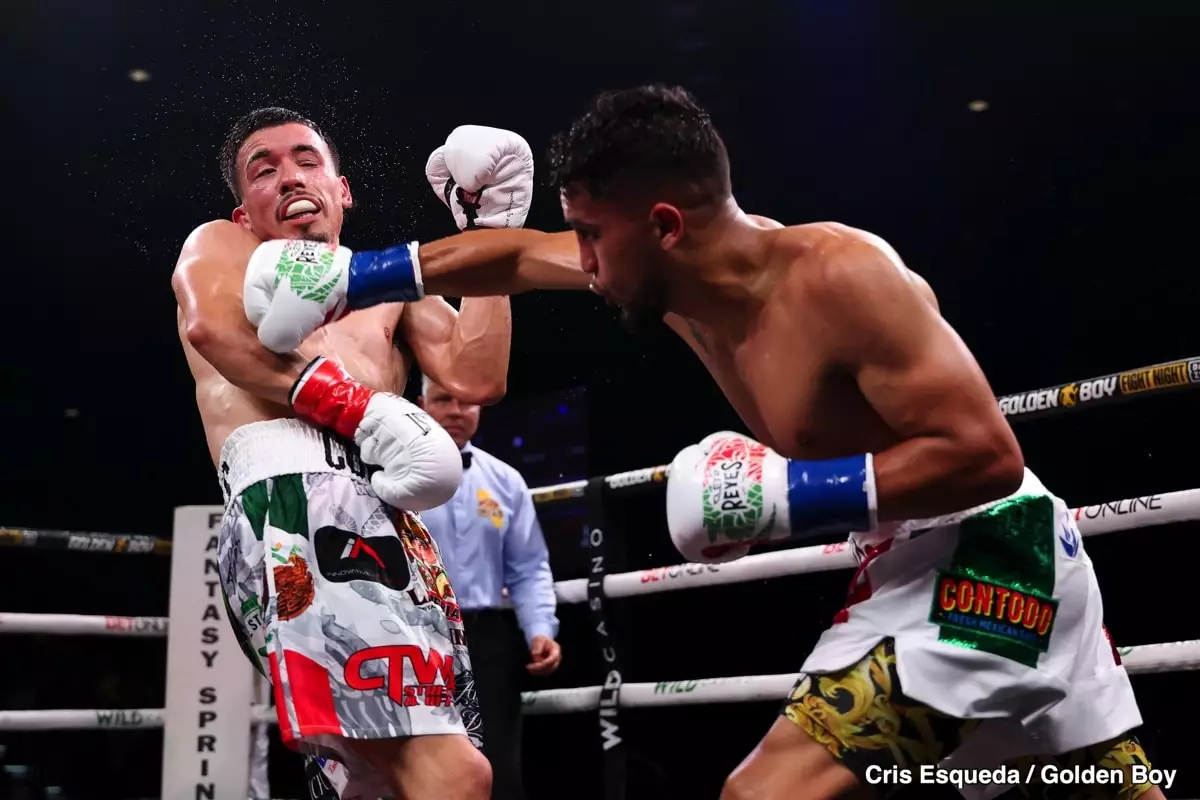When the arena filled with anticipation, few could have predicted the roller coaster of emotions that would unfold during this recent fight night. The night was a testament to the raw, unfiltered nature of boxing—a sport that embodies perseverance, strategy, and sometimes, the frustrating imperfections of human judgment. As the fighters traded blows, the true essence of the sport was tested not just by their fists but also by the often flawed system that judges their performances.
The headline bout between Manuel “Gucci Manny” Flores and Jorge Chavez encapsulated the dichotomy of hope and disappointment that boxing often represents. With both fighters demonstrating grit over ten intense rounds, fans expected a decisive outcome but were instead met with a muddled decision—a draw that left many, fighters included, questioning the objectivity of the judges. The scorecards, varying widely, exposed the inconsistency and subjectivity that remain inherent in boxing scoring. It wasn’t just about the punches thrown or the damage inflicted; it was about the judges’ perception of who won each round, a system prone to bias, fatigue, or simple human error.
Chavez, evidently frustrated, vocally challenged the decision, highlighting a common issue: the disconnect between what happens in the ring and how it is scored outside of it. His accusation about the cut—caused by a headbutt rather than a punch—illuminates another dynamic at play. Such incidents can sway judges’ opinions, yet they are not always properly weighted. Chavez’s bold declaration that Flores isn’t a real puncher and his provocative callout for Picasso—an undefeated prospect—mid-fight reflects the unpredictable nature of fighters trying to assert dominance amid confusion. Fuelled by adrenaline and the desire for vindication, fighters often let emotion cloud their strategies, and sometimes the incompetence of judging exacerbates these frustrations.
Flores’s perspective was just as telling. His emphasis on work rate and volume over power underscores a recurring theme in boxing: sometimes, quantity is mistaken for quality. The fact that Flores stayed respectful early on and later acknowledged he’d need to be more aggressive indicates a strategic adjustment that many fighters grapple with—knowing when to press and when to hold back. Fight fans tend to underestimate the importance of pacing; a fighter’s success hinges on managing energy, momentum, and perception. Flores’s comments suggest he recognizes his initial caution might have cost him the round, hinting at a vital lesson for future matchups: act decisively before the judges’ cards are finalized.
The confrontation also cast a stark light on the limitations of the judging system. Were the judges distracted, unprepared, or simply biased? Their indifference to the chaos on the ring draws attention to a fundamental flaw—judges often operate with a limited understanding of a fight’s true narrative, which can be clouded by subjective impressions and external distractions, like arena noise or even, as sarcastically hinted, nacho platters.
On the undercard, the night’s surprises continued to challenge conventional expectations. Jordan Panthen, with his reputation as a stellar prospect, was subdued by Phoenix’s Farid Ngoga, who demonstrated patience and tactical intelligence to secure a majority decision. Ngoga’s calm approach and smart boxing contrasted sharply with the early starstruck hype around Panthen, underscoring that talent without strategic discipline often falls short in the ring.
Meanwhile, new stars emerged with unrelenting force. Cayden Griffiths, with his relentless style, continued his ascent, stopping David Ramirez in the fourth round with a punishing hook. His flawless record—a spotless 6-0 with six KOs—proclaims his potential but also highlights the brutal reality of boxing: to succeed, young fighters must learn to combine raw power with strategic smarts. Leonardo “Bazooka” Sanchez reinforced this narrative, demolishing Abraham Valdez with a textbook knockout, reminding everyone that relentless pressure and ferocity still reign supreme.
Judicial clarity returned momentarily in the form of Fabian Guzman’s unanimous decision over Brian Arregui. The judges’ agreement on the outcome showcased how consistency can be achieved and how a fair assessment requires focus and professionalism—a stark contrast to the chaos in the main event. But this fleeting moment of coherence only emphasizes how often the sport’s integrity depends on the willingness of officials to perform their roles diligently.
In the preliminaries, the night’s dull draw between Bryan Lua and Kevin Piedrahita exemplified boxing’s often stagnant reality—a back-and-forth that lacked passion or clear intent, leading to a routine, shrug-worthy result. Yet, Javier Meza’s commanding win over Cesar Villarraga demonstrated how straightforward, disciplined boxing still has a place, providing clarity where chaos usually reigns.
This night of boxing eloquently underscores not just the fighters’ resilience but also the crucial need for reform in judging. Boxing, one of the most physically demanding and emotionally charged sports, desperately needs a system calibrated to recognize true skill, effort, and impact—not just the loudest or most aggressive fighter. Without that, the sport risks devolving into a spectacle marred by controversy and inconsistent rulings, eroding the very foundation it was built upon. The fight nights of today are a mirror reflecting both the sport’s enduring appeal and its glaring imperfections—yet, amid the chaos, the power of perseverance and strategic brilliance continue to shine.


Leave a Reply